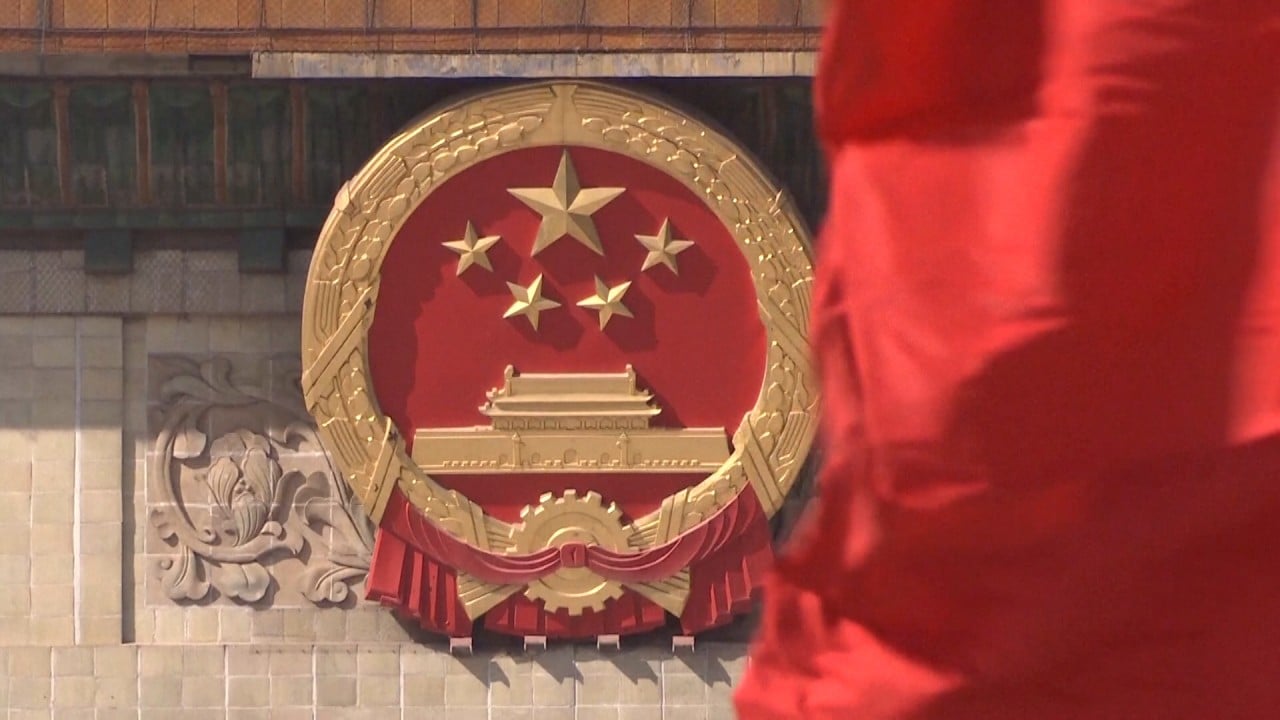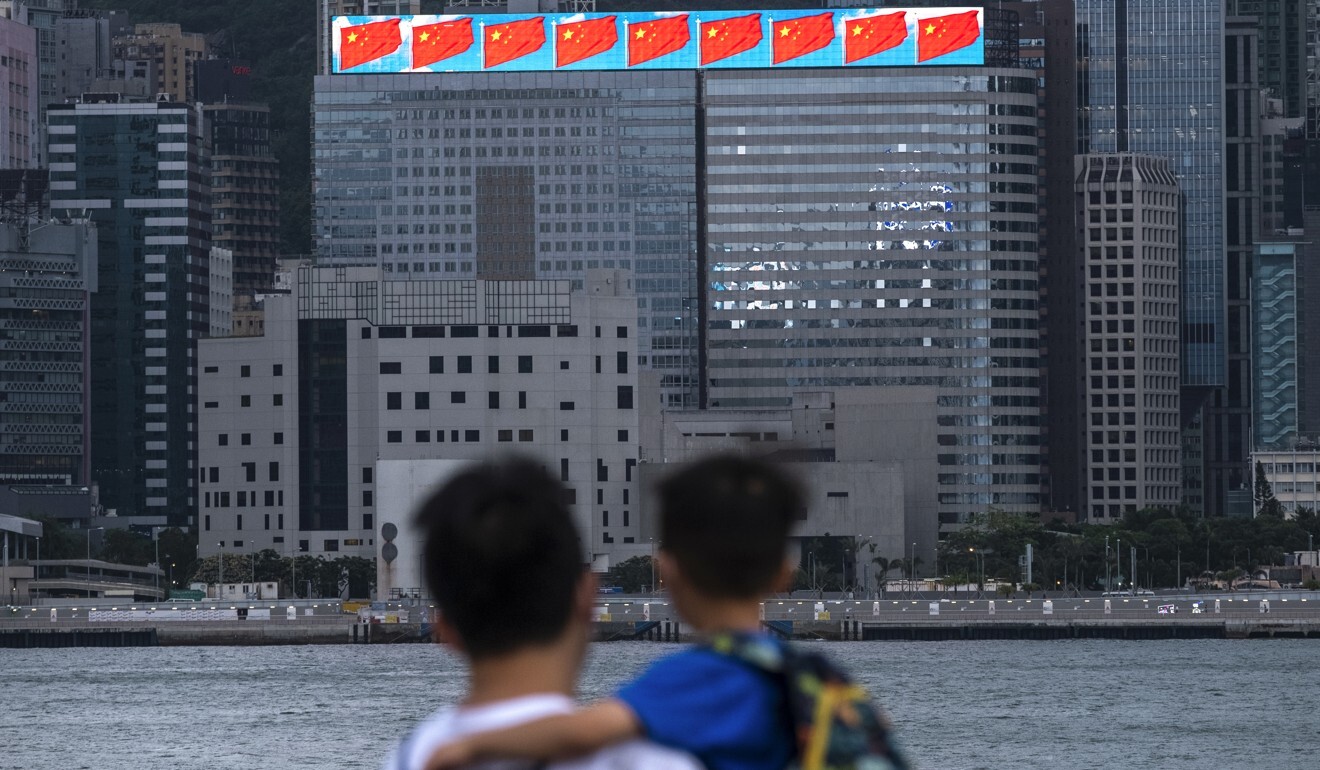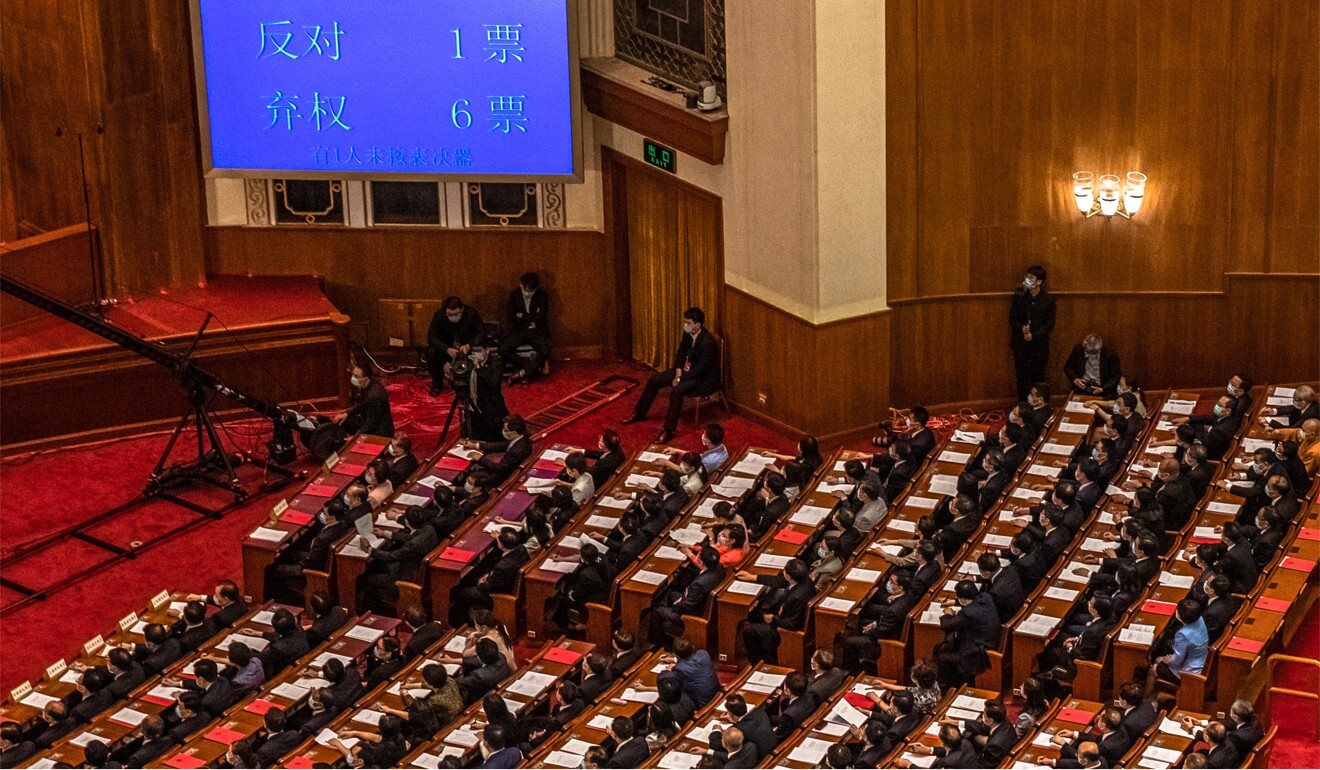
National security law: Hong Kong’s pro-establishment politicians reveal they were caught off guard by Beijing’s plan
- Several say they only found out about the move after they arrived in Beijing last month for the annual session of the nation’s legislature
- They also reveal that they were given just 48 hours to submit their views earlier this week to Beijing’s liaison office in city
Suggesting that the central government’s decision was cast in stone, they said they only knew about it after they arrived in the Chinese capital last month for the annual session of the nation’s legislature, several of them told the Post.
Revealing the speed at which the discussions were progressing, they also said they were only given 48 hours to submit their views earlier this week.

02:23
Beijing remains ‘very firm’ on national security law for Hong Kong, says city’s leader Carrie Lam
Many believed they had limited room to make changes to the national security law, which was expected to be passed as early as the end of this month, as the matter was out of the city’s hands and Beijing had already made its own assessment of what was needed for Hong Kong.
Lam was said to have hinted that a new institution that the law would require the city to set up would likely fall under the charge of the police force. Police Commissioner Chris Tang Ping-keung was among the officials who went to Beijing with Lam this week.
Beijing ‘very firm’ on national security law for Hong Kong: Carrie Lam
In the capital on Wednesday for a one-day visit, Lam met Vice-Premier Han Zheng, after which she told the media that China’s leadership had heard the opinions of Hong Kong people on the law, but would continue to listen to views raised by politicians, legal experts, and local delegates to the NPC and CPPCC.

The NPC dropped a bombshell on the evening of May 21 when it announced at a press conference that it would craft a national security law for Hong Kong, on the eve of the opening of the annual parliamentary session.
While many Hongkongers were shocked by the news, the deputies sitting in Beijing were also surprised as they only learned about it that afternoon, the third day of their trip. They had first gone to Shenzhen on May 19 for Covid-19 tests before making their way to the capital.
“When we received the agenda on the afternoon of May 21, the bill was still unnamed on the paper,” one of the 36 local deputies said. “Beijing’s liaison office head Luo Huining then appeared and told us briefly that it was about national security. We still didn’t know clearly how it could be done.”
Hong Kong tycoon Michael Kadoorie backs national security law
At a preparatory meeting for the annual session held at the Great Hall of the People that night, they finally saw the name of the resolution on paper.

Article 23 requires the Hong Kong government to enact its own national security law rather than the central authorities doing it. But in making its announcement, Beijing had said it did not believe the local government could do so given the polarised political environment.
Several CPPCC delegates said they had seen media reports about the possibility of Article 23 being pushed forward before they met Chinese officials that evening.
The whole thing was airtight. I think Beijing didn’t trust us and didn’t risk leaking the news
“I was caught off guard. I had been prepared to talk about Article 23 at the upcoming CPPCC meeting, which would have made me look like a fool if I failed to change my script,” a delegate said. “The whole thing was airtight. I think Beijing didn’t trust us and didn’t risk leaking the news.”
The NPC delegates finally saw the resolution, which has seven articles, on May 22 and six days later, on May 28, some 2,878 deputies endorsed it for the Standing Committee to draft the law, which aims to prevent, stop and punish secession, subversion of state power, terrorism and foreign interference in Hong Kong. But opposition politicians and critics have warned it could be used to suppress dissent and erode long-standing freedoms.

After the annual session ended last week, NPC and CPPCC delegates said the liaison office had invited them to submit their opinions but they were asked to do so within 48 hours by Wednesday.
Although many said they worked hard to do so, some also admitted it was difficult for them to pen concrete ideas as the resolution was too skeletal with few details fleshed out.
“I believe Beijing has already drafted the law, based on different scenarios,” a source said.
NPC deputy Michael Tien Puk-sun said in his submission he stressed the need for the legislation to be compatible with the rule of law as understood by Hong Kong’s legal and judicial sectors.
Destroying Hong Kong’s status as financial hub would be a ‘challenge’
At Friday’s meeting with Lam, sources said, views were split among the NPC deputies on whether national security law offenders would be sent for trial on the mainland.
“Some suggested that the local courts were not credible in handling national security cases and believe China’s Supreme People’s Court should have the final say,” a source said.
“But some also believe the law should be incorporated into Hong Kong’s legal system, so as not to undermine ‘one country, two systems’.”
Meanwhile, Tam Yiu-chung, the city’s sole representative on the NPC Standing Committee – the apex of the legislature which has been tasked to pass the law – earlier suggested the public could hand in their views to the NPC’s website. However, Tam admitted that the site was not ready, as the common practice on the mainland was to collect opinions only after the draft was issued.
“I wrote to the secretariat and asked if they could open the site before the draft was released. But I haven’t received a reply yet,” Tam told the Post.
Additional reporting by Tony Cheung

